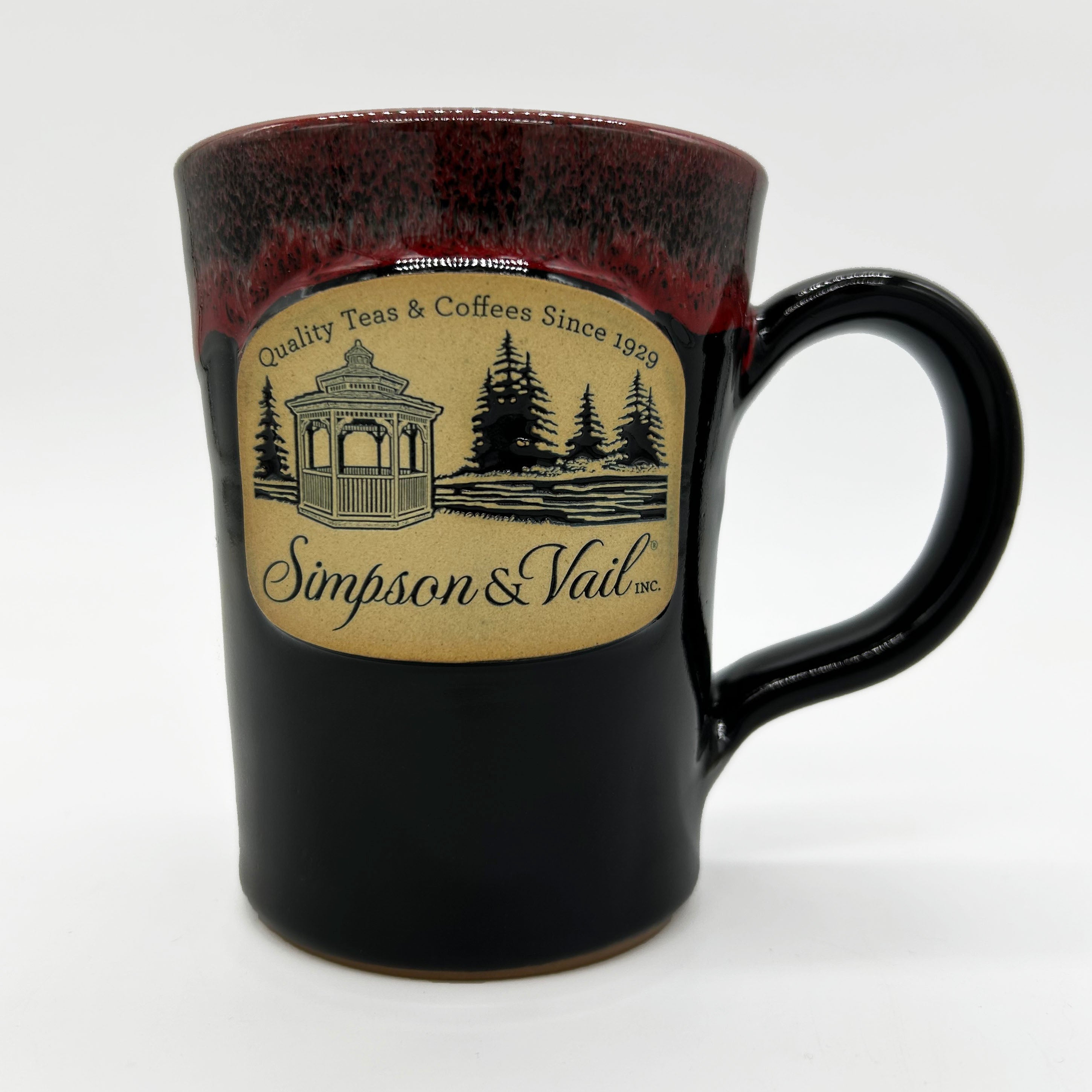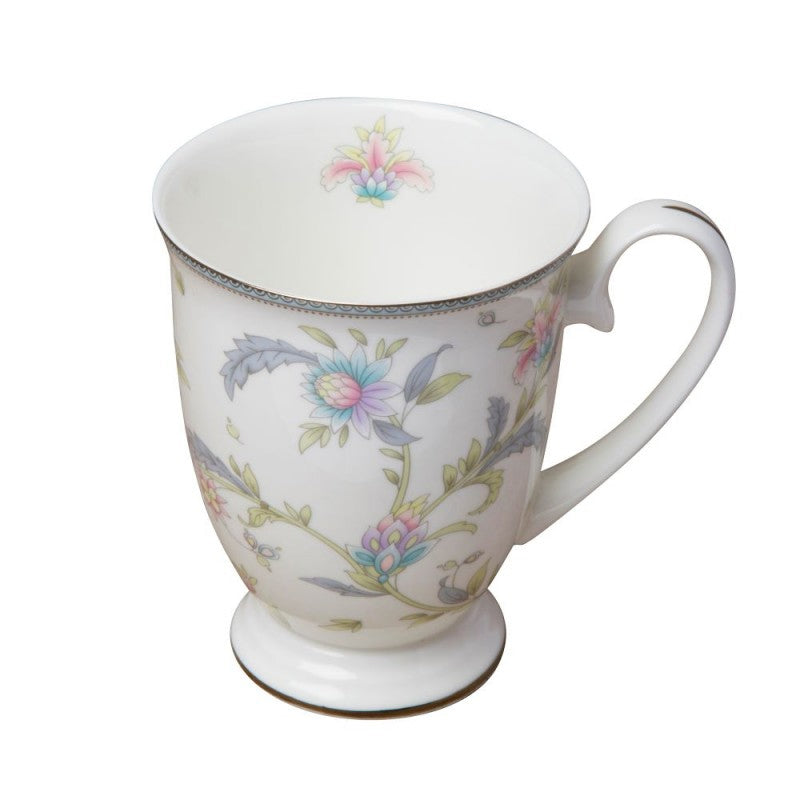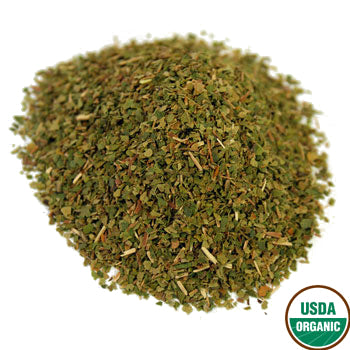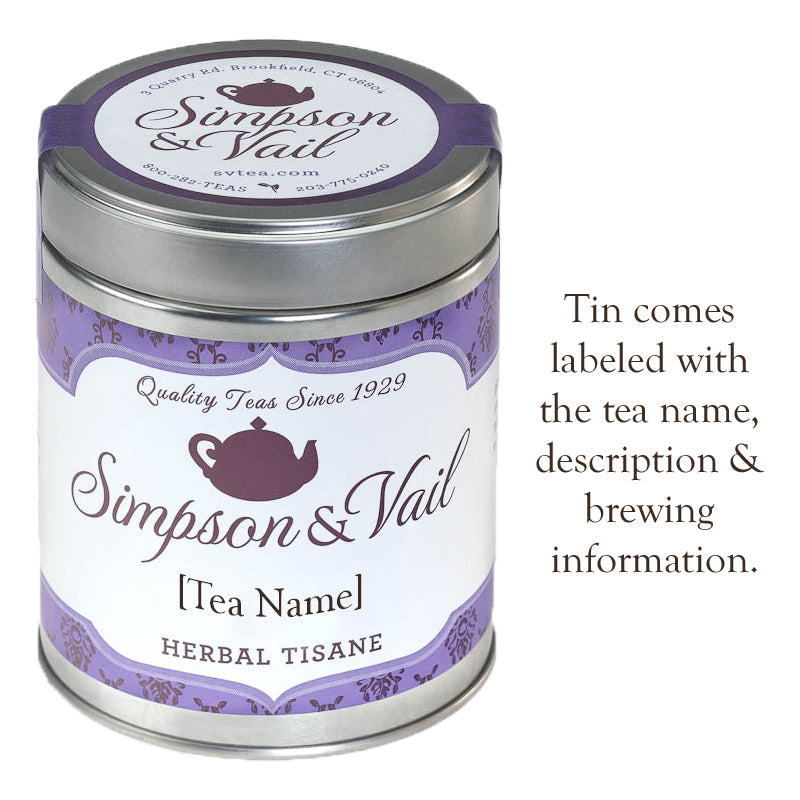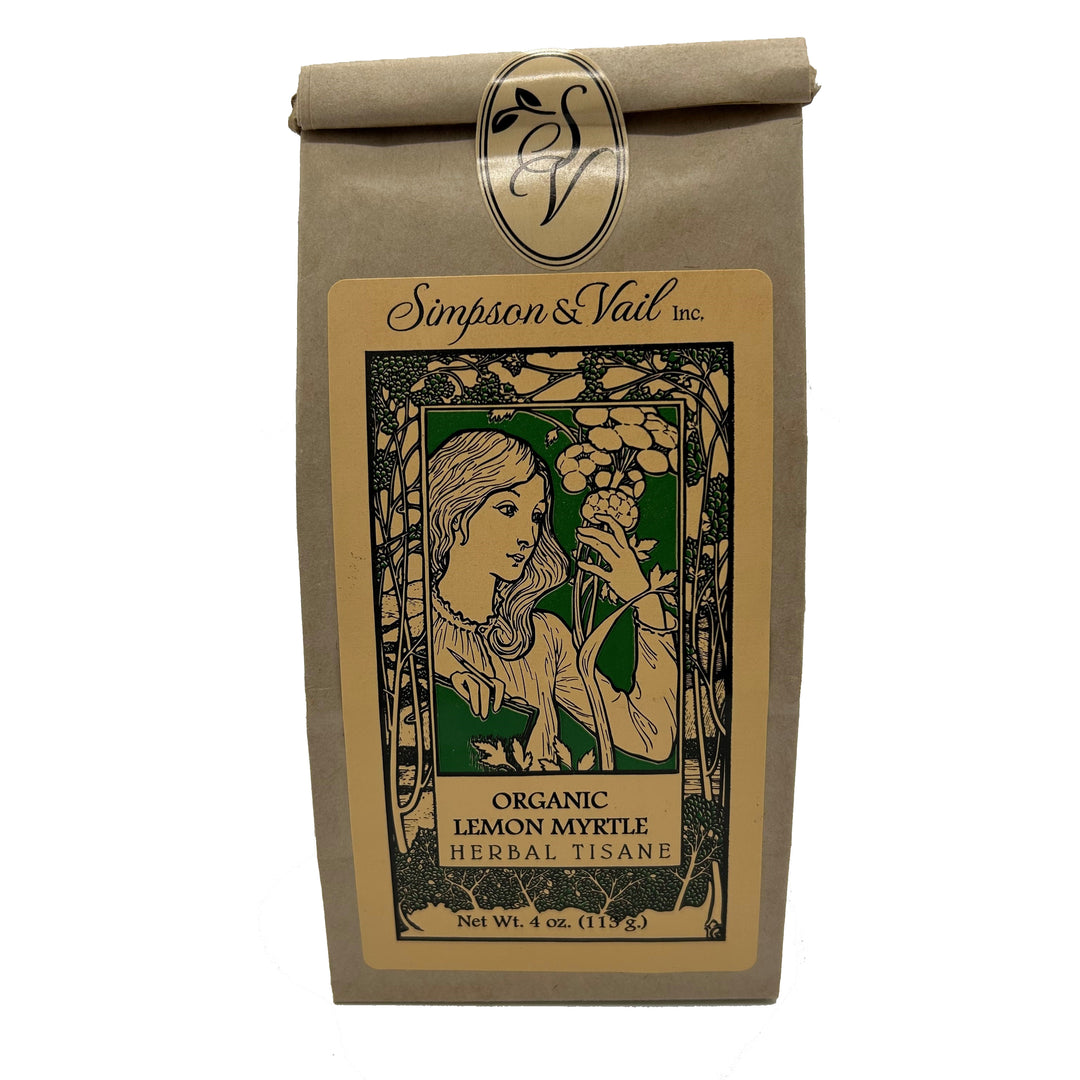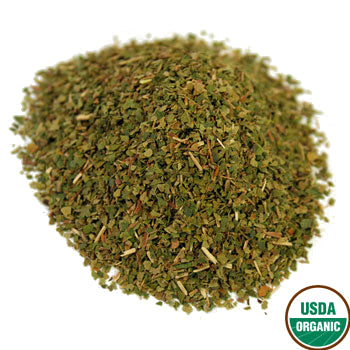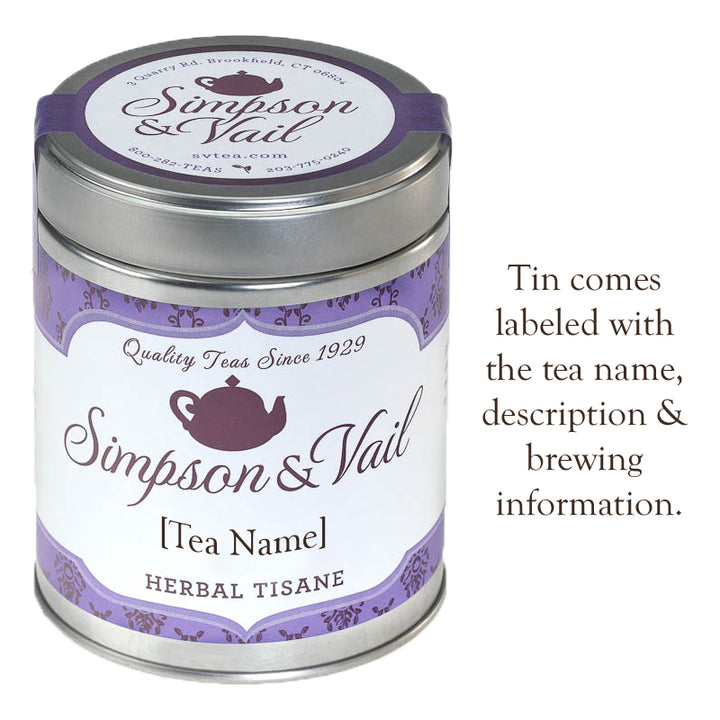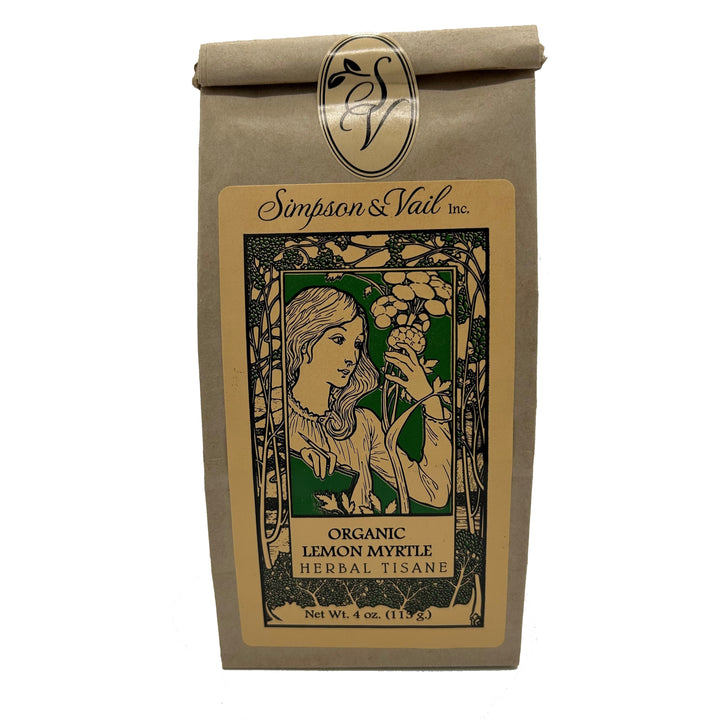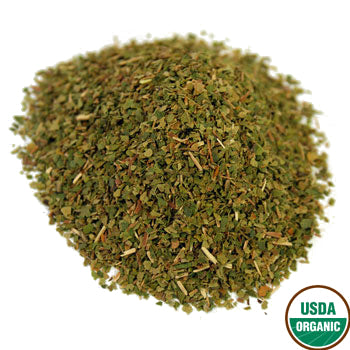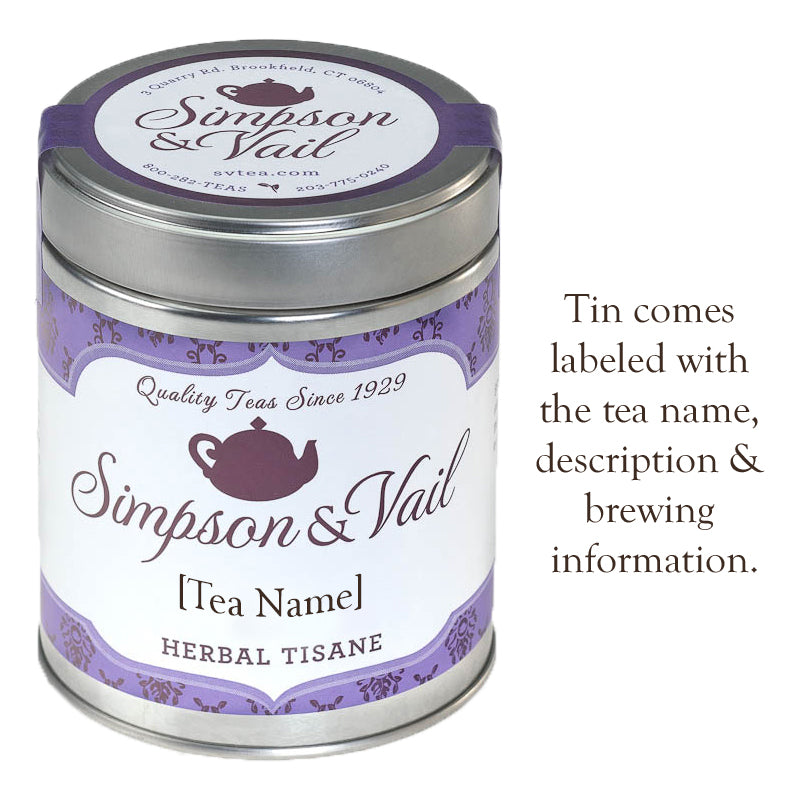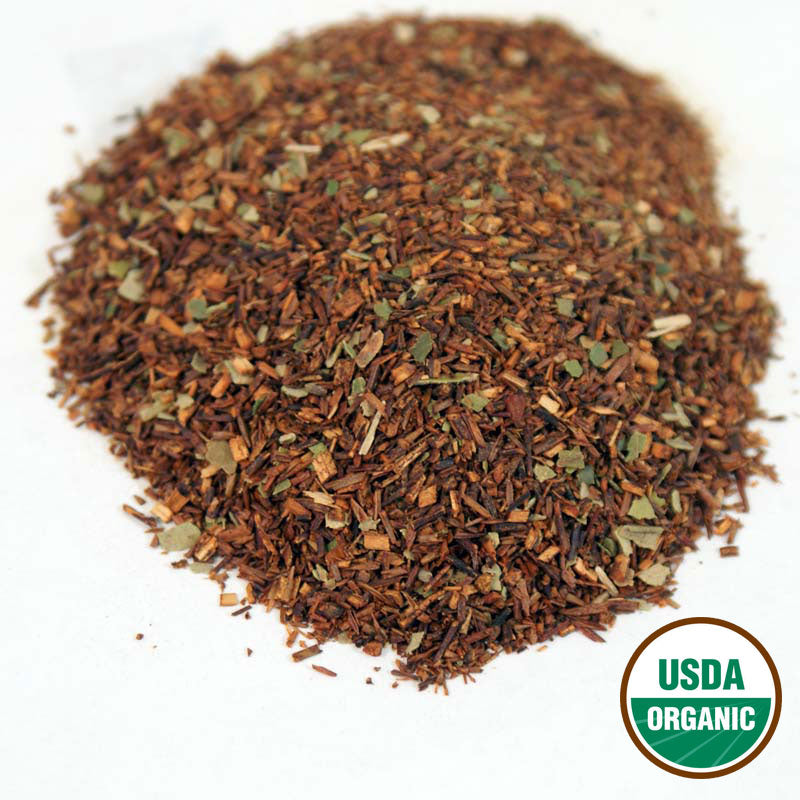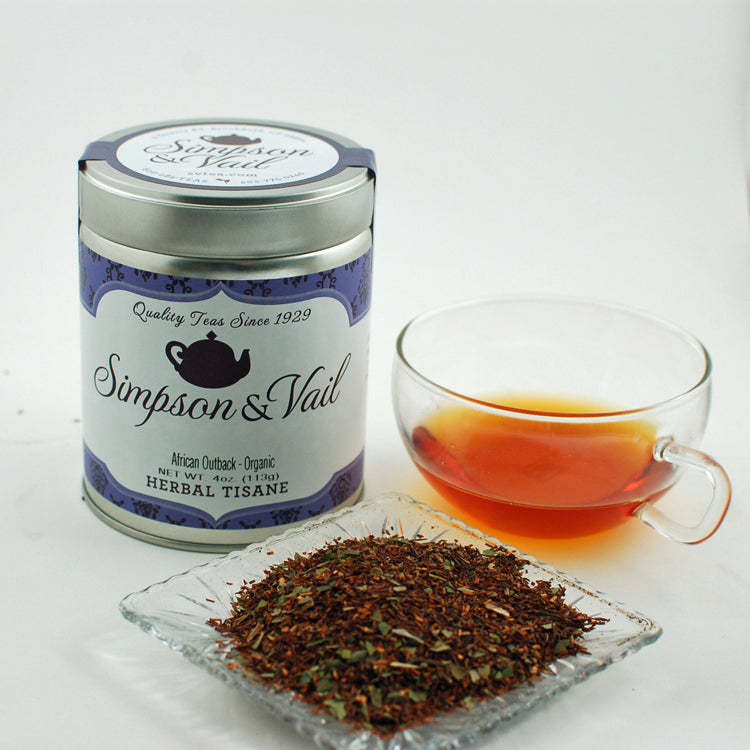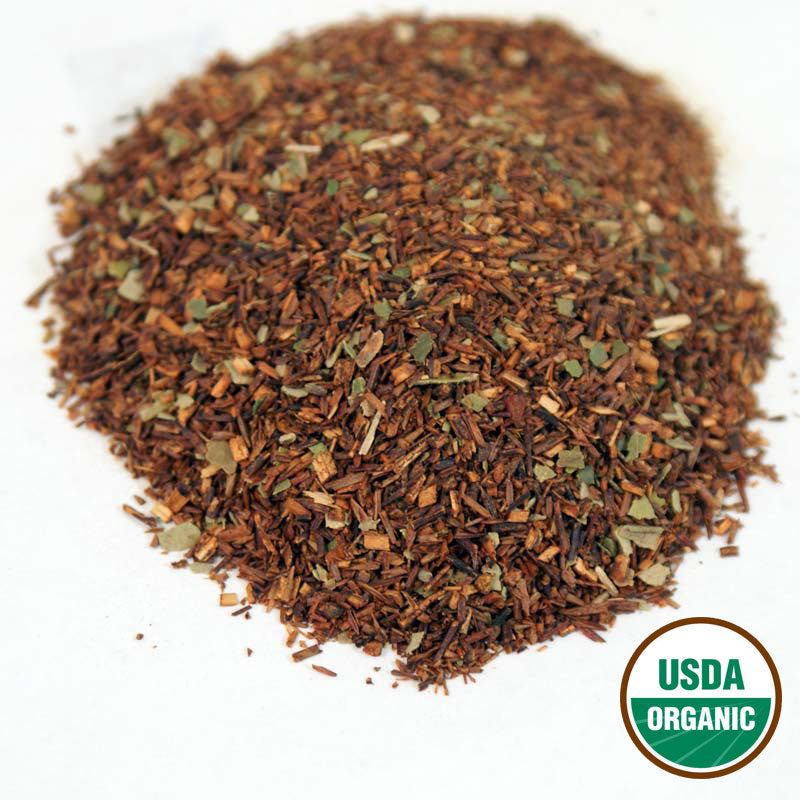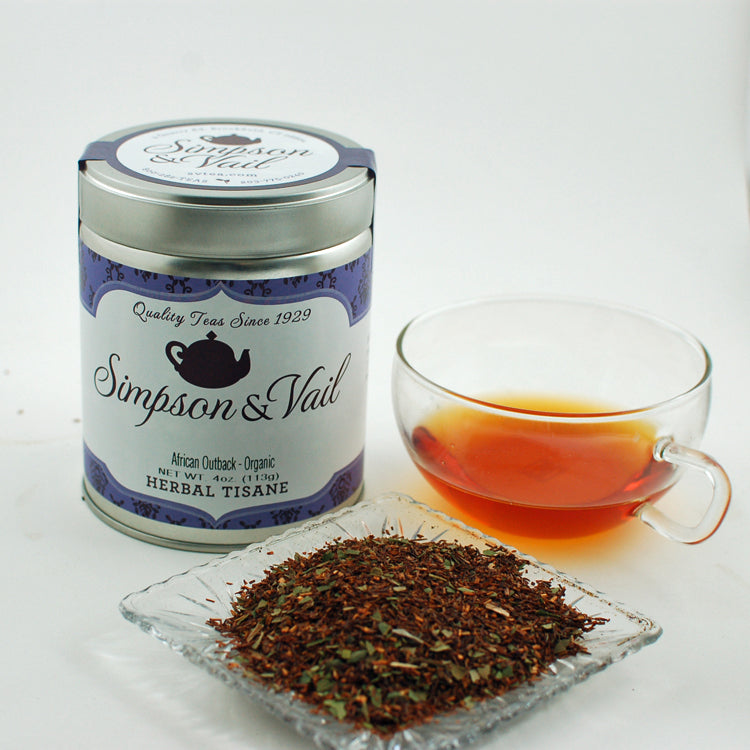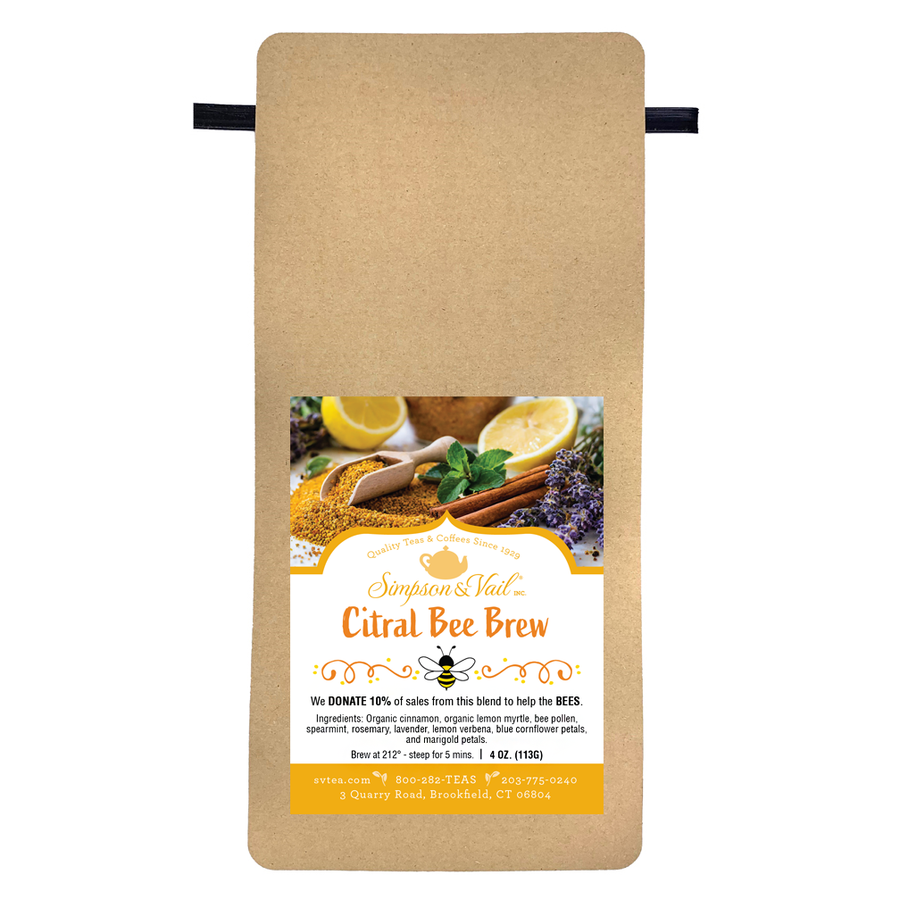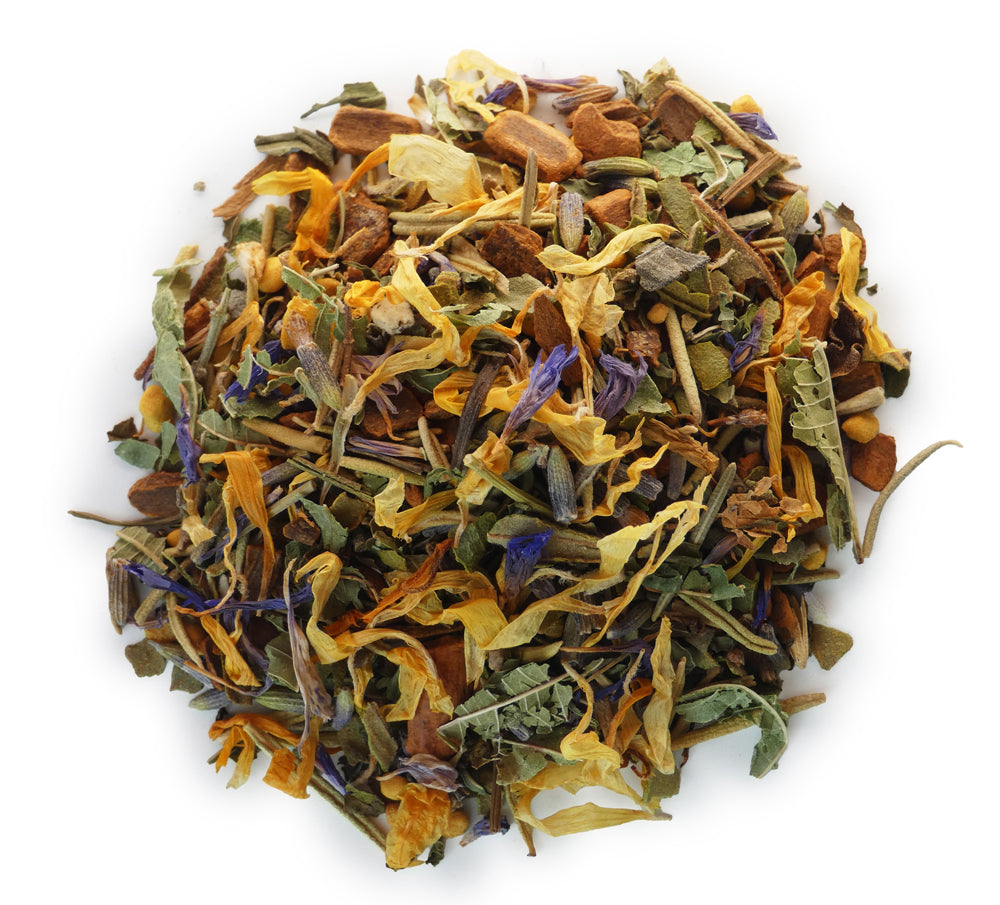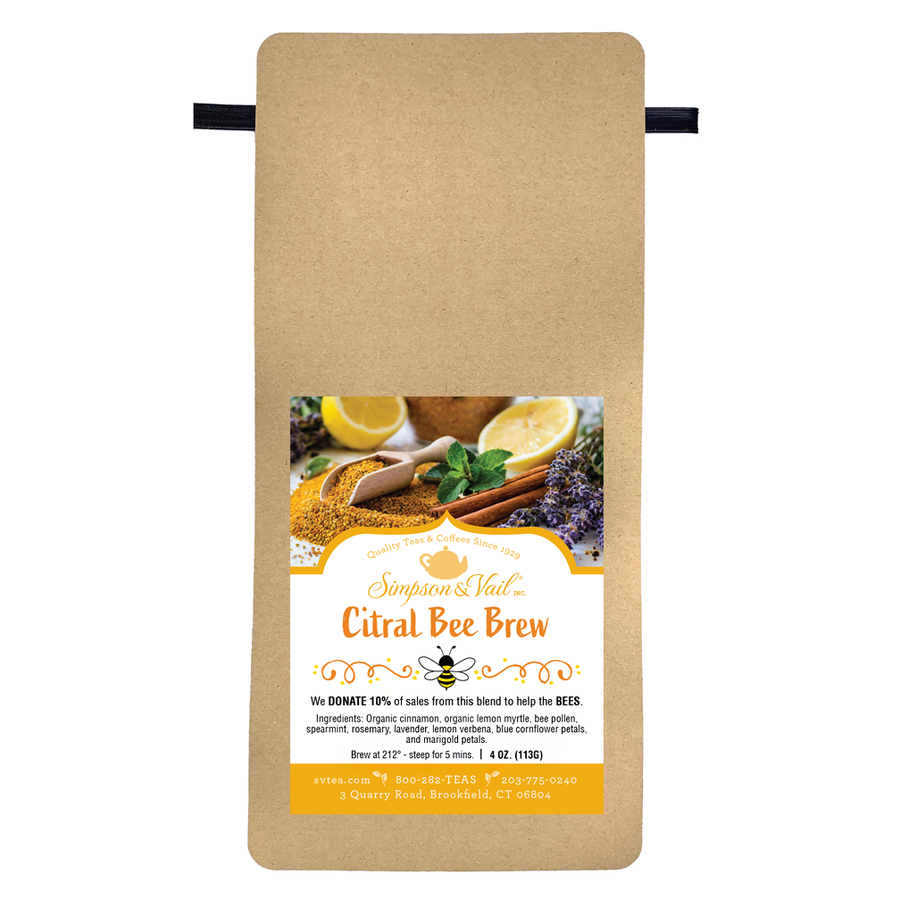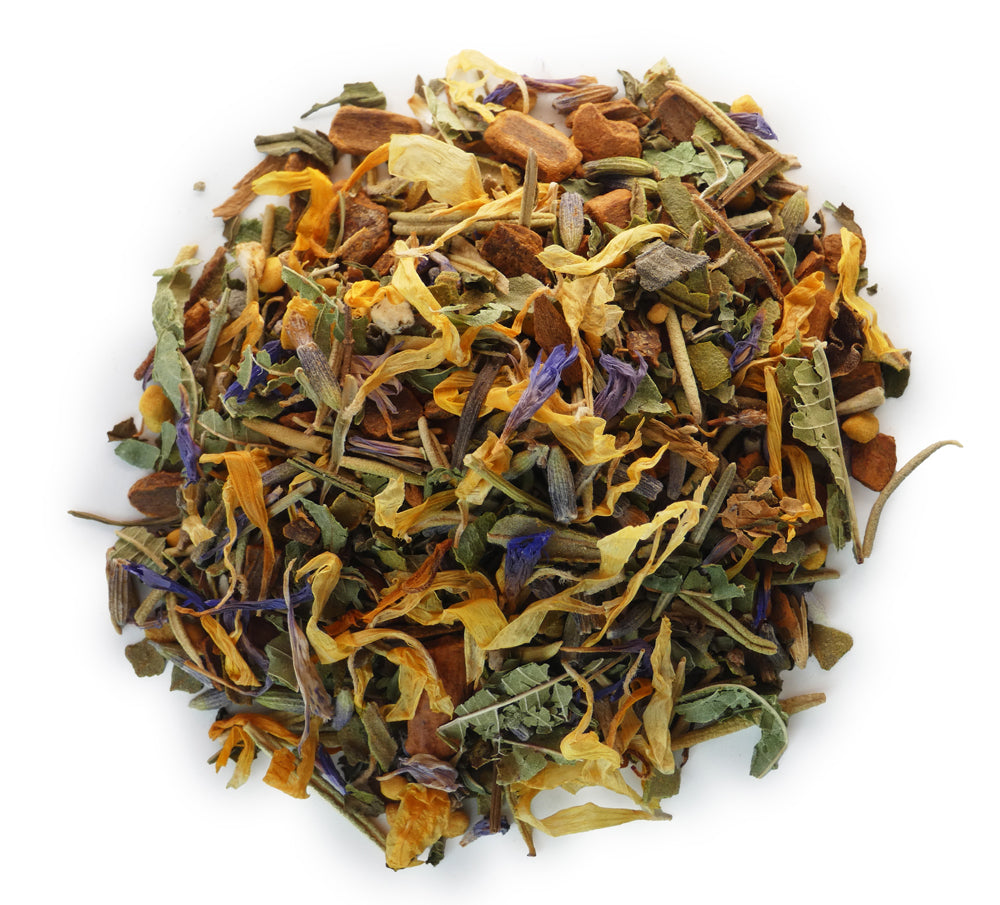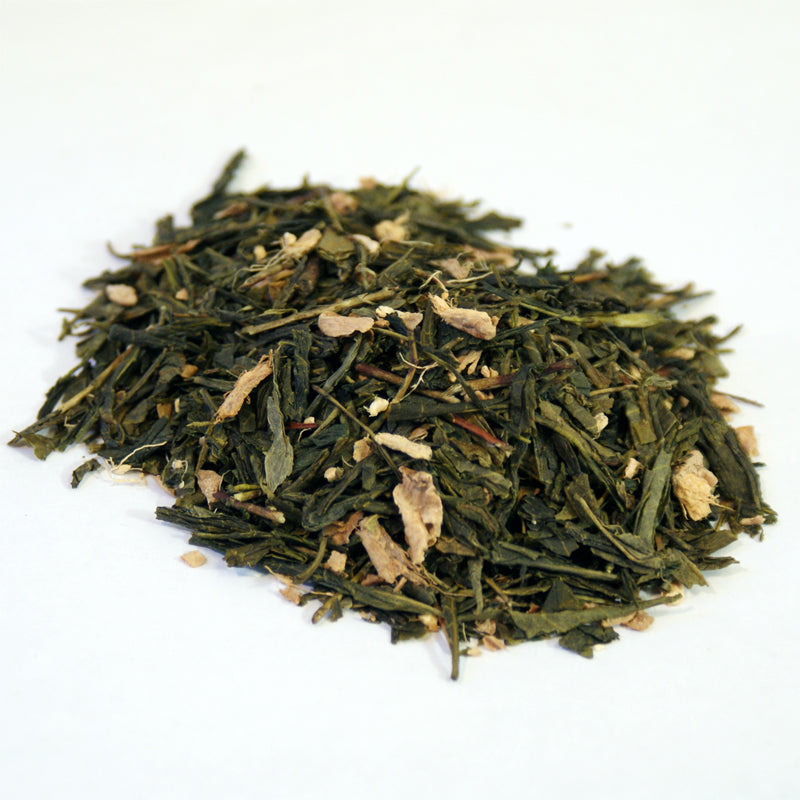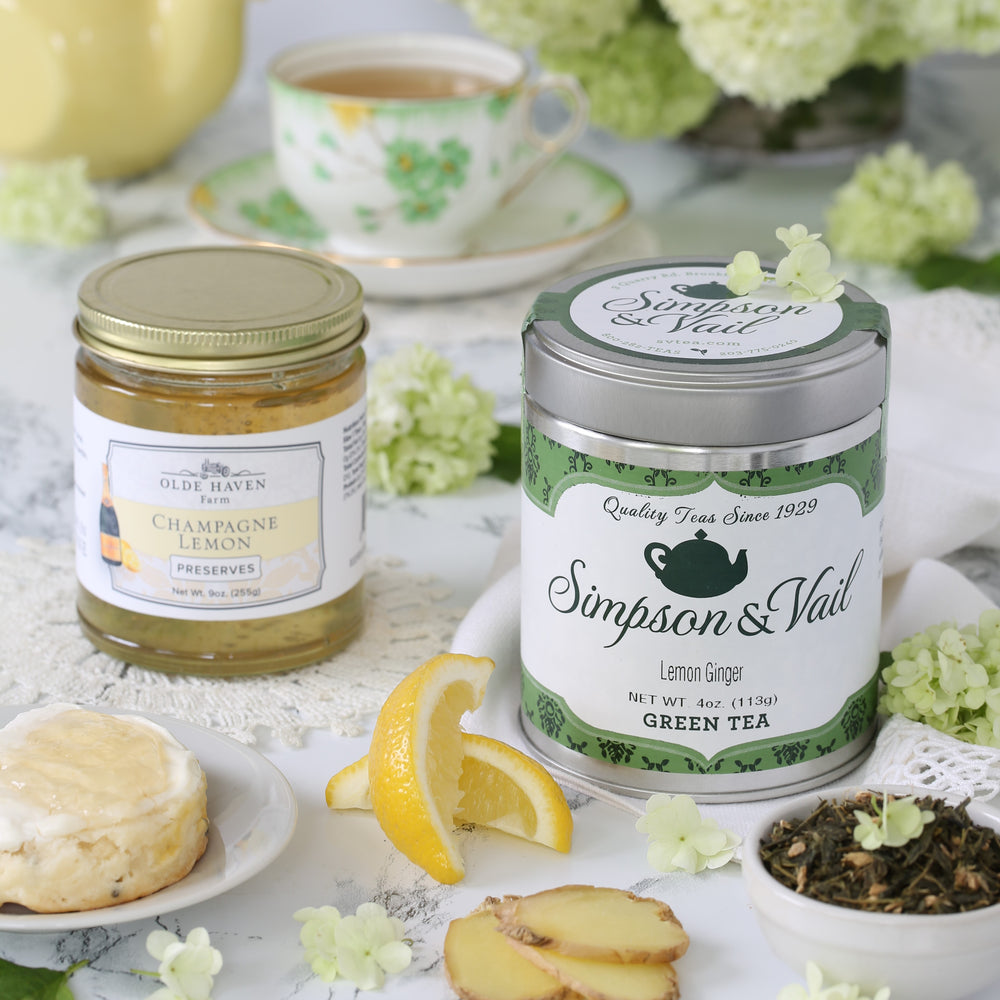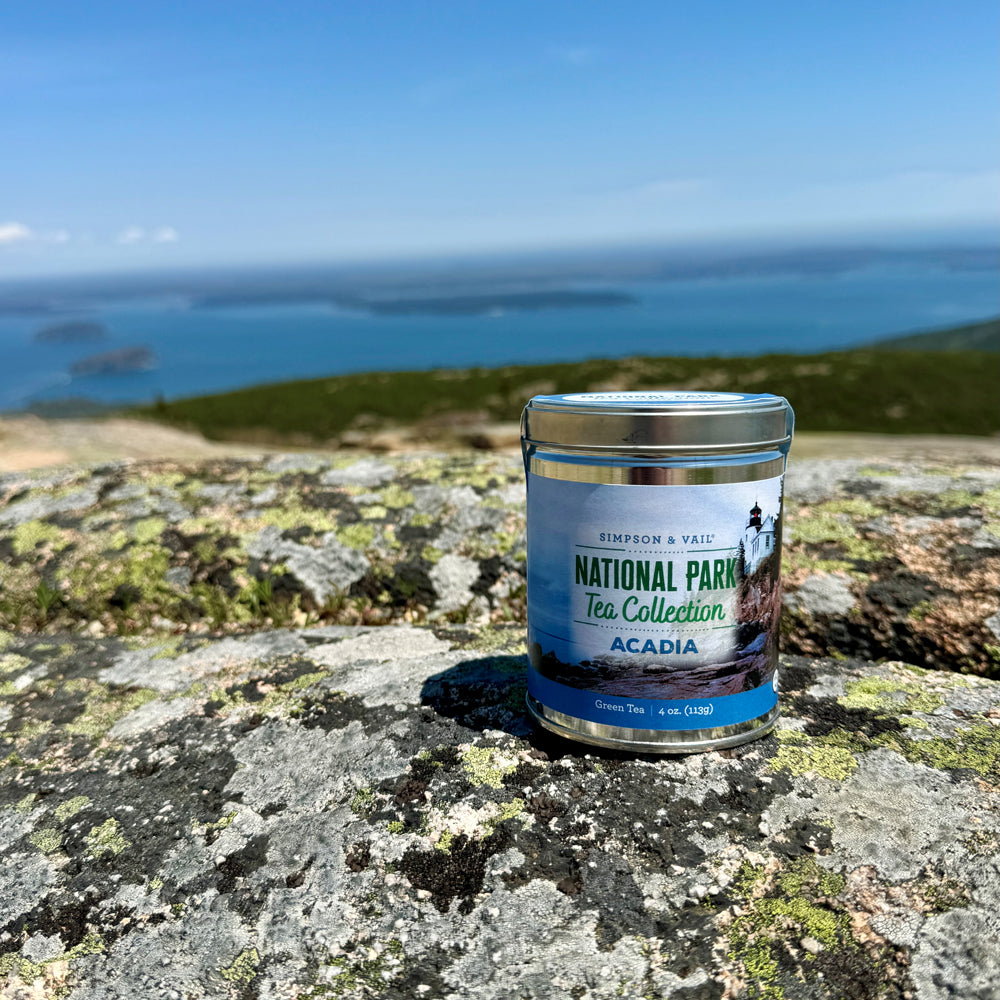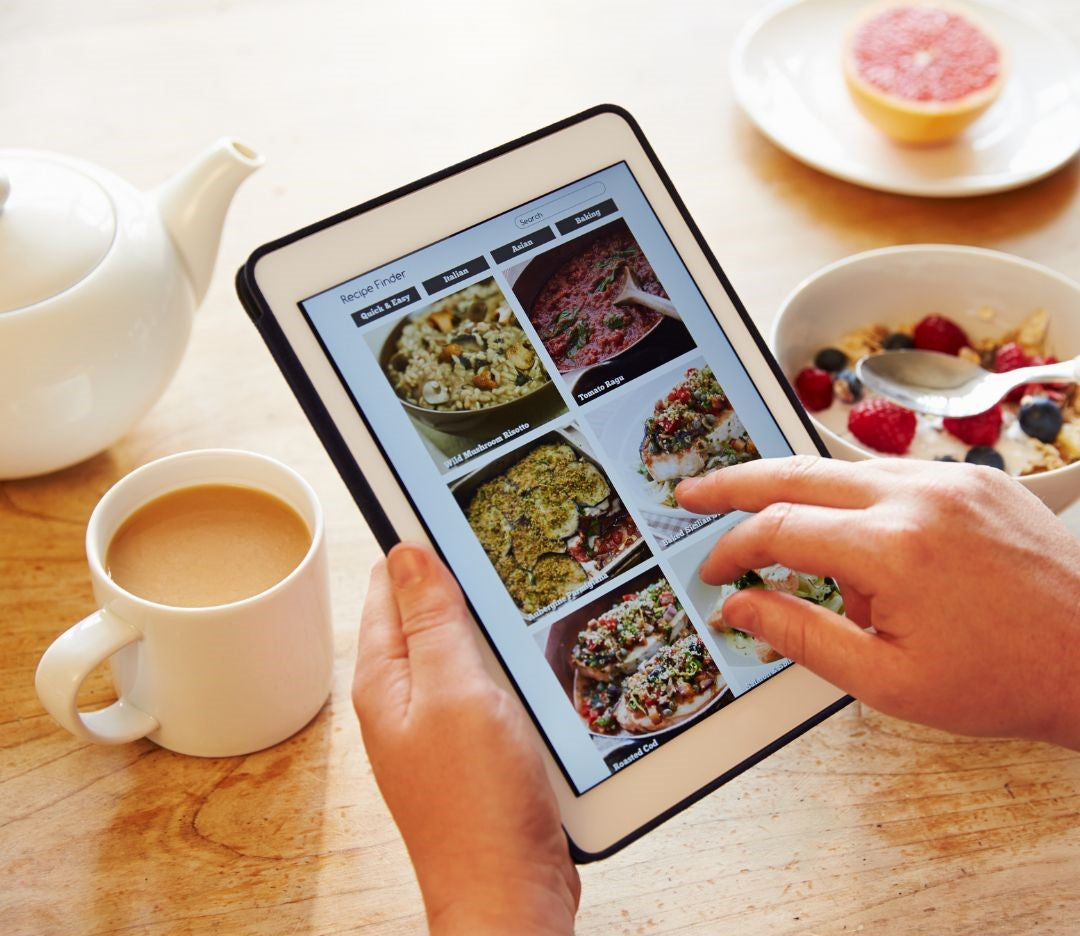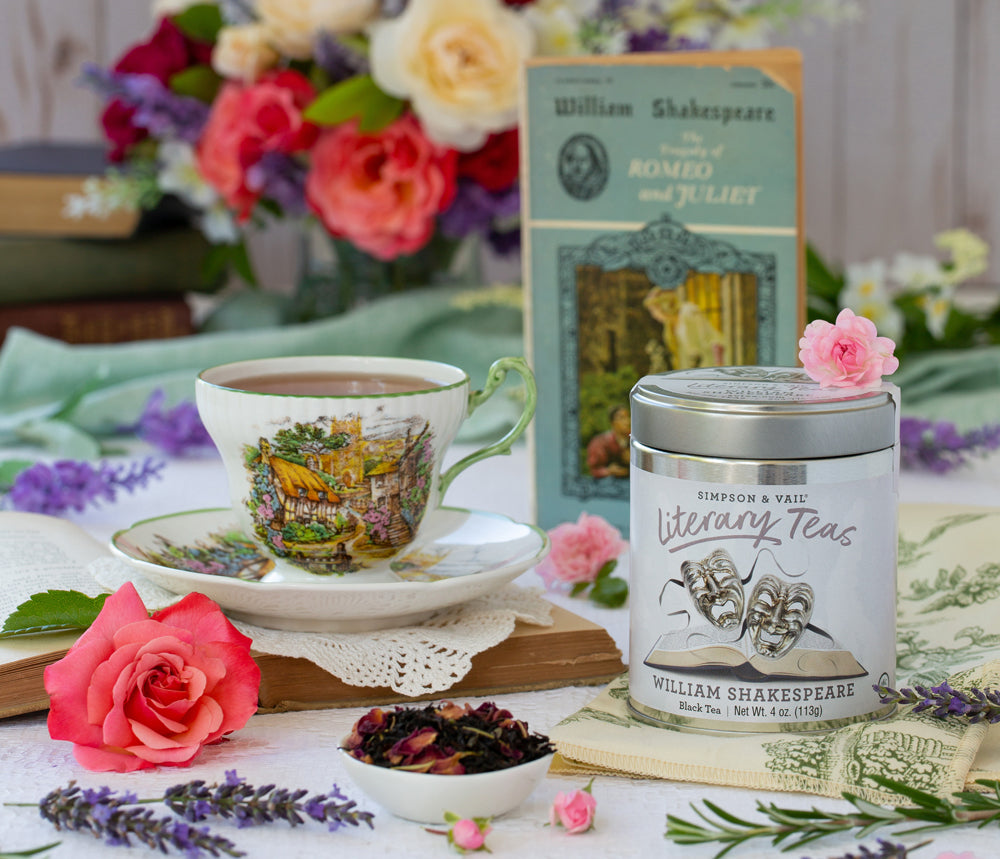Lemon Myrtle Organic - Herbal Tisane - WS
Lemon Myrtle Organic - Herbal Tisane - WS
(Backhousia citriodora) Lemon Myrtle is a uniquely refreshing and exquisitely aromatic “tea”. Certified organic, the essential oils in the leaves are the world’s richest known natural source of citral (90-98%). Caffeine-free Lemon Myrtle has an intense refreshing lemon-lime aroma and taste that can be enjoyed either plain or in one of our interesting blends.
Brew tea at 212º - steep for 3-5 minutes.
Lemon Myrtle (Backhousia citriodora) is indigenous to the coastal, sub-tropical rainforests of Queensland, Australia, from Brisbane to Rockhampton in a range of altitudes from 50 to over 800 m above sea level. The Sunshine Coast and Proserpine area are identified as main areas of natural strands.
Lemon Myrtle is a superb "tea" product that is used as an herbal infusion on its own as well as a delicate flavoring in specialty tea blends when blended with black, green or other herbal teas. Lemon Myrtle tea has enjoyed huge success in international tea markets. The superior flavor profile of lemon myrtle as well as its appeal as an alternative to lemongrass has resulted in its success as a tea product.
Baron Ferdinand von Müller named Backhousia citriodora in 1853 after James Backhouse (1794-1869), an English nurseryman and keen botany collector. Backhouse was an early Quaker missionary who visited Australia in 1832-8, documenting the unique Australian flora and fauna as well as writing about Australian society during that era.
In 1889 Joseph H. Maiden reported the potential use of Lemon Myrtle for commercial production and Schimmel & Co analyzed the species in 1888 for chemical properties, isolating citral for the first time. Other 'lemony' essential oils come from citrus (3-10% citral), lemon grass (75%), the tropical Verbena (74%), the Lemon Scented Tea Tree (80%), but Lemon Myrtle is the world's richest known natural source of citral (90-98%).
Harvesting of the Lemon Myrtle leaf occurs nine months of the year, excluding the three months of monsoon season from January to March. The fragrant leaf is then dried in hot air dryers specifically designed to dry the leaf efficiently and hygienically without damaging the leaf's natural essential oil composition. Consistent quality product is available throughout the year.
Australian Lemon Myrtle is grown, harvested, and processed from plantations of 1.4 million trees, grown without the use of pesticides, and is certified organic. Strict hygiene standards are maintained during all production processes to ensure a consistent, clean, quality product. The lemon myrtle is 100% natural, is not solvent extracted, is not irradiated, and does not contain synthetic ingredients, preservatives, artificial flavors or artificial colors. Lemon Myrtle is not only a popular infusion for tea drinkers; its leaves provide a great source of lemon flavor for cooking, and it has even found its way into cleaning products. Lemon Myrtle soaps, lotions and potions, lip-balms and body butters, shampoos and shower gels are becoming increasing popular. The first washing powders and cleaning agents are on the market not only in Australia but also throughout the world.
Properties of Australian Lemon Myrtle
- Australian Lemon Myrtle is the world's richest known natural source of citral (90-98%).
- Caffeine free
- Non-acidic
Preparation
Standard infusion - 3 cups daily, prepared as an herbal tea. Steep for 5 minutes.

Lemon Myrtle in cooking
Typical Use - Add to breads, pancakes, scones, muffins, butter cakes, cheesecakes or breads. Mix into hot cooked rice over fish or chicken.
Helpful Hints - Extremely versatile flavoring. Oils are volatile and can dissipate with heat so best added as a post-preparation seasoning or cold formulated.
Lemon Myrtle bread:
Mix 1 teaspoon of lemon myrtle into the bread mix before pouring it into your bread maker.
Lemon Myrtle bread stick: butter bread and sprinkle lemon myrtle on top, wrap and heat.
Lemon Myrtle scones:
Mix lemon myrtle with your flour before you proceed with your favorite scone recipe.
Lemon Myrtle tea:
Infuse lemon myrtle leaves in hot boiling water for 5 minutes.
Lemon myrtle goes very well with chicken and fish, whether applied in the cooking process or as a marinade. For Thai style lemon rice dishes, use brewed lemon myrtle "tea" in place of water when making rice.
Baked Tofu with Lemon Myrtle Herbal Tisane
Ingredients:
1 block extra-firm tofu, well pressed
1 Tbsp + 1 tsp. Tamari
1 tsp Lemon Myrtle, organic
1 Tbsp olive oil
1 Tbsp lemon juice
1 tsp toasted sesame oil
1/2 tsp chopped ginger root
1/2 tsp sugar
1/2 tsp basil
1/2 tsp thyme
Preparation:
Press any excess water out of the tofu. Slice into 16 identical sized slices (roughly 1/2" thick). Place in a shallow baking dish.
Combine the Tamari and Lemon Myrtle in a small bowl and microwave for 30 seconds. Add the remaining marinade ingredients and whisk. Pour over the tofu. Marinate for 1 hour (on longer) turning half way through to completely coat the tofu pieces.
Preheat the oven to 400 degrees. Bake for 10 minutes then flip the tofu and bake another 15 minutes. Turn the broiler on Low and broil the tofu on both sides until golden.
-
-
- In stock, ready to ship
- Backordered, shipping soon
